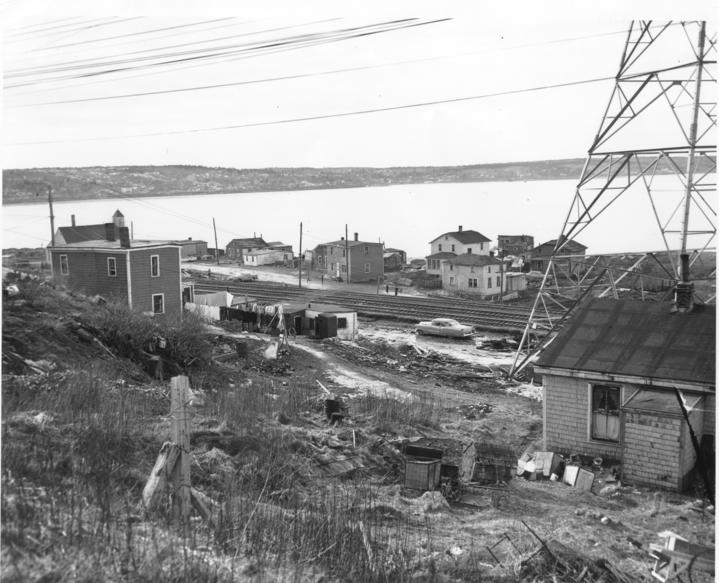Racism
Halifax built on racist planning policies, says urban planning prof
Ted Rutland examines how racism has shaped the HRM: from Africville to the regional plan

caption
Africville, a black community in Halifax, was destroyed by the city. The mayor apologized for this in 2010. (Photo taken in 1965.)Urban planning in the Halifax Regional Municipality is built on — and perpetuates — systemic racism, says a planning professor visiting Halifax.
Ted Rutland, associate professor of geography, planning and environment at Concordia University, was in Halifax this past week promoting his book, Displacing Blackness: Planning, Power and Race in Twentieth Century Halifax. He said when planning works, it works for middle class white people, at the expense of marginalized communities.
“Some people are deeply harmed by the way the city has been developed; other people have been especially privileged,” he said in an interview.
His research was inspired by the story of Africville, a black settlement that was situated along the Bedford Basin. A once vibrant community where life centred around the church and neighbours knew one another, Africville came to house a prison, infectious disease hospital, slaughterhouse and landfill. Related stories
The neighbourhood was demolished by the former City of Halifax in the late 1960s. Residents were relocated to Uniacke Square and Mulgrave Park, their possessions moved in garbage trucks.
From a planning perspective that centres white life, moving toxic industries to Africville was logical, says Rutland.
He calls Africville part of a “larger history of racist planning in Halifax,” that extends to encroaching development in Beechville, and disputes over boundaries in Lucasville.
Regional plan
He traces that history up to the 2006 regional plan, the HRM’s growth and development bible. The plan is reviewed every five years, and a 2014 version is now being followed by the municipality.
Rutland calls the plan “entirely illegitimate.” He said it perpetuates racial injustice and violates HRM policies that establish black determination as a priority.
Of the over 200 communities that make up the HRM, six are officially recognized as African-Nova Scotian.
During the regional plan’s 2014 review, Kasia Tota, now principal planner for the HRM’s Centre Plan, worked on community engagement. At the time, black communities were raising issues like access to services, transit and open space during consultations.
That was “not surprising given the historic isolation of the communities,” she said.
Rutland argues the plan didn’t address any of those concerns, and none of the investment it spurred was directed at black communities.
Lived experience
LaMeia Reddick, a consultant from North Preston, was a special guest at Rutland’s talk Monday night at the Halifax Central Library. She remarked on “how present these conversations are, and how much they are a part of our lives.”
She talked about the emotions that come up for her as a black woman when black bodies and lives are being researched.
Rutland’s work builds on a history of black struggle and knowledge, and he urges readers to look at what’s being done by black people in their communities.
Rodney Small, a resident of Halifax’s north end, also spoke at Monday’s event. Small remembered being at another of Rutland’s talks where the audience was largely white and thinking, “I need to grab this conversation and bring it back to my community.”
“We were displaced to here from a place where we were once owners of our land, to now living in a colonized community,” Small said about the north end’s black community. It has ties to Africville, and is undergoing gentrification.
Before the event finished, Dennis Wright, an audience member and community advocate from Beechville, asked if there were any municipal councillors or HRM planners in the room. Six people stood up, which earned praise from Wright.
“That’s a start to a change,” he said.

